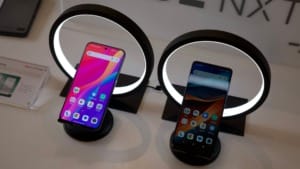LinkedIn expands ID verification to more regions through partnership with Persona
LinkedIn partners with Persona to extend ID verification to more regions, enhancing user profile credibility with a simple, free authentication process.

LinkedIn is extending its identity verification service, now partnering with Persona to offer ID confirmation to users in more regions. This collaboration allows individuals to authenticate their government-issued IDs, granting them a verification badge on their LinkedIn profiles.
Table Of Content
New regions for ID verification
Initially, LinkedIn provided ID verification in the US through a partnership with CLEAR, known for its airport check-in services. The service was later extended to Canada and Mexico. Now, with Persona, this verification option is available to users in several countries, including Argentina, Australia, Bangladesh, Brazil, Chile, Colombia, Indonesia, Kenya, Malaysia, Morocco, Nigeria, Peru, the Philippines, Saudi Arabia, and the United Arab Emirates. However, availability may vary within these regions.
Requirements and process
To use this service, one needs a government-issued passport with an NFC chip and a device capable of scanning the chip. Most modern smartphones with NFC capabilities, like those used for contactless payments, will suffice. This expansion means more LinkedIn users can authenticate their identities, enhancing the credibility of their profiles.
The role of generative AI and user verification
As generative AI becomes increasingly prevalent, LinkedIn integrates these technologies into its platform, highlighting the need for reliable user verification. This is particularly important as more AI-generated bot profiles emerge on social media. ID verification, especially at no cost, could be a more effective solution than other methods, like charging users for app interactions.
Outsourcing verification and data privacy
LinkedIn outsources the verification process to Persona, reducing its workload but involving another party in handling personal documents and selfies. Although this might raise privacy concerns for some, the process is straightforward and accessible. Verified accounts might gain prominence, such as higher rankings in search results, encouraging more users to opt in.
The benefits for CLEAR and Persona
Through these partnerships, CLEAR and Persona gather more user data. CLEAR requires users to open an account for verification, while Persona collects data to expand its database, though users can choose not to have their information stored indefinitely. Persona also creates facial geometries from the user’s government ID and submitted selfies for verification but only retains this geometric data for a short time.
In collaboration with Persona, LinkedIn’s expanded ID verification offers users an easy and free way to authenticate their profiles, enhancing trust and credibility on the platform. The full details of LinkedIn’s ID confirmation options are available on their website.
















